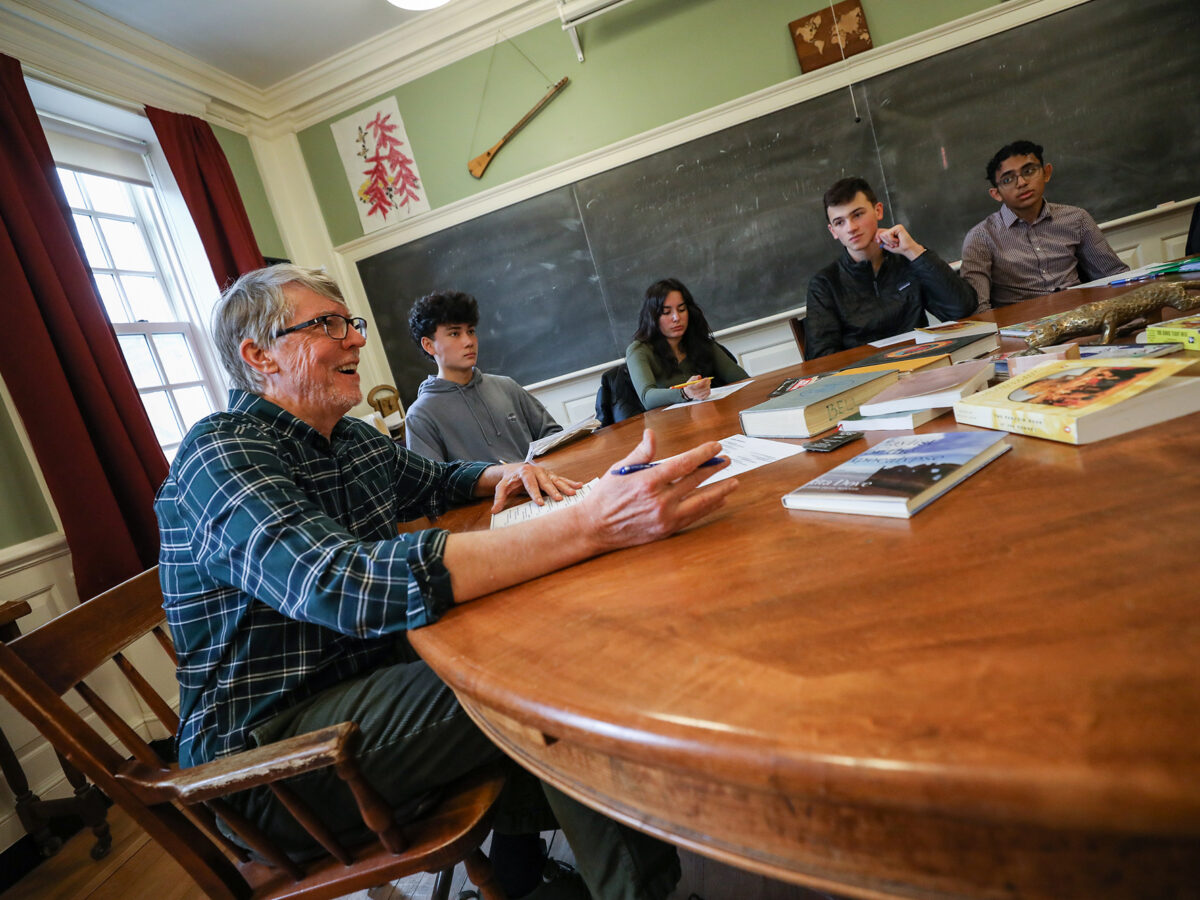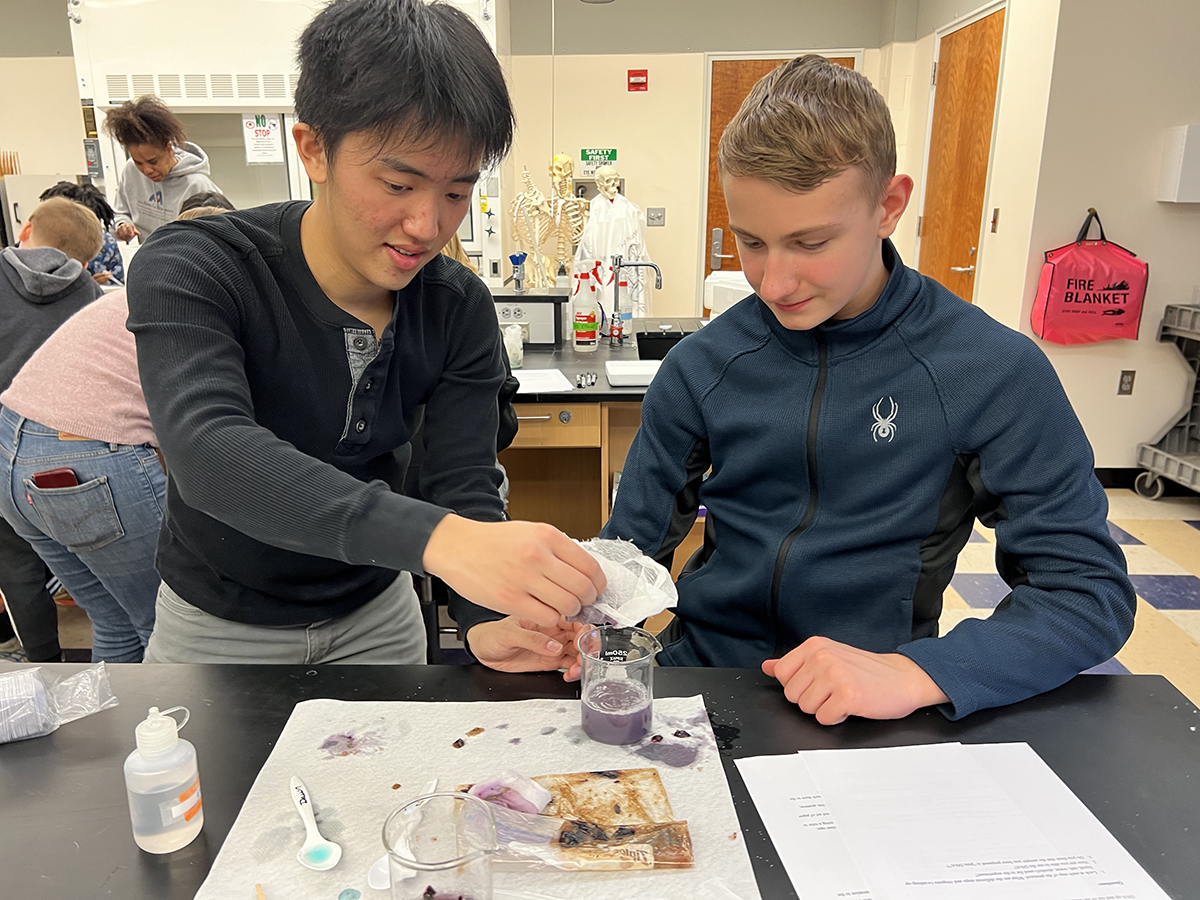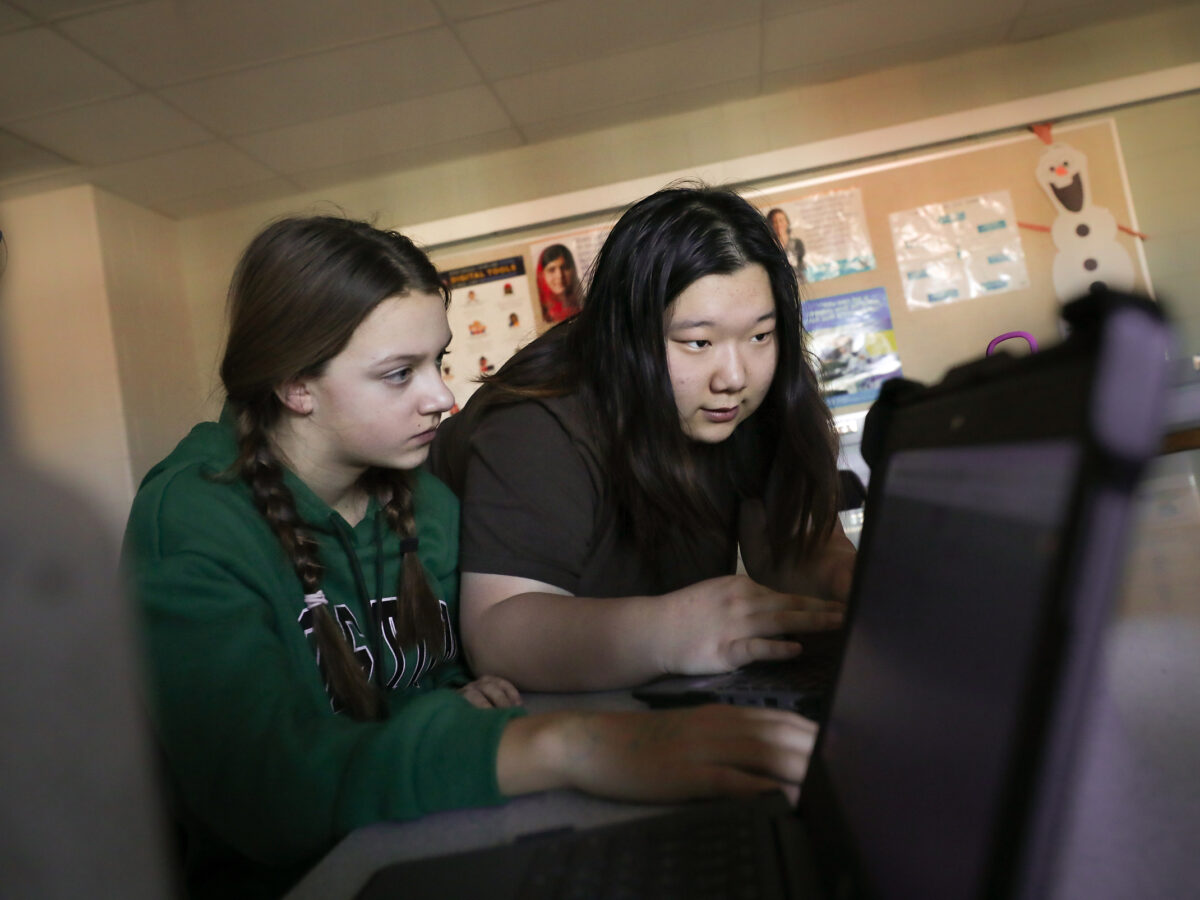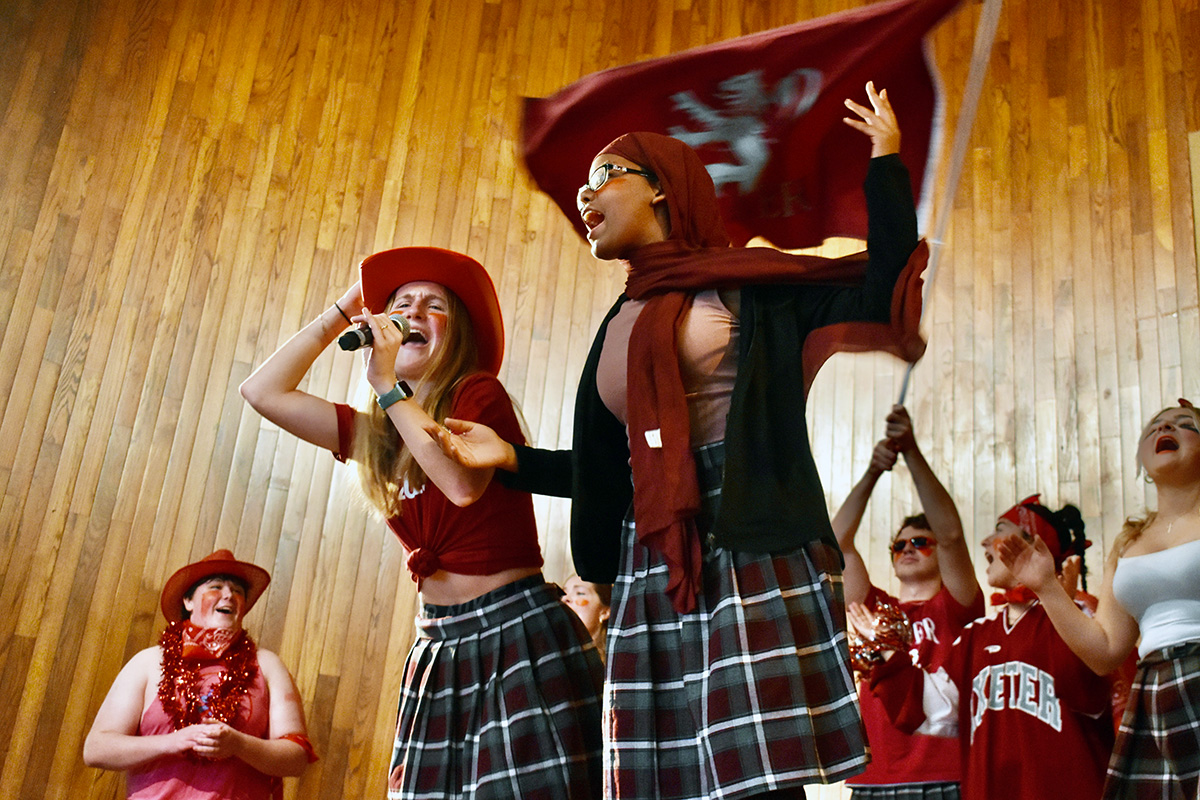“Reading is the shortest and safest way to achieve happiness.”Jorge Luis Borges
Aaronian to be honored with 2023 Founders' Day Award
General Alumni Association President, Trustee and Awards Committee Chair Betsy Fleming ’86 has announced the selection of Richard S. Aaronian ’76, ’78, ’97 (Hon.); P’94, P’97 as this year’s recipient of the Founders’ Day Award.
Conceived by Principal Stephen G. Kurtz and established by the Trustees in 1976, the Founders’ Day Award is given annually by the GAA in recognition of exceptional service to the Academy. The legendary Hammy Bissell ’29 was given the first Founders’ Day Award, and an Academy who’s who has followed.
Aaronian joined the faculty in 1971 as an instructor in science. Named the Harlan Page Amen Professor of Science in 1999, he is credited with introducing ornithology and marine biology into Exeter’s science curriculum, along with a place-based field trip program. He has led educational travel programs for students and alumni in locations as far flung as Costa Rica and Plum Island, Massachusetts.
In addition to serving as dorm head for three dorms — Amen and Bancroft halls and Williams House — Aaronian coached boys JV hockey for 26 years and served as an assistant coach for JV baseball for 17 years. He was a member of numerous major committees and was Chair of the Science Department from 1991 to 1995.
When he retired in 2020, Aaronian was the Exeter faculty’s longest-serving member, having logged 49 years of devoted service. His exceptional teaching has also been recognized with the Rupert Radford Faculty Fellowship Award, the Brown Family Faculty Award and the George S. Heyer Award.
Aaronian will receive the Founders’ Day Award and speak during assembly May 19.










